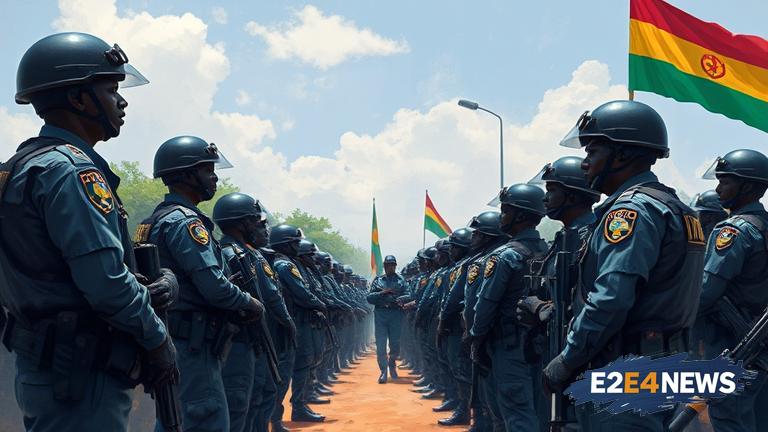The Malawi police force has been under scrutiny following a series of protests that took place on June 26, which were disrupted by thugs wielding pangas. The situation escalated, leading to the intervention of the International Criminal Court (ICC), which has ordered the Malawi police chief, George Kainja, to take immediate action. The ICC’s intervention has resulted in the arrest of several individuals, including those responsible for the violent disruptions during the protests. Furthermore, the ICC has also ordered the Malawi police to discipline incompetent officers who failed to maintain order during the protests. The Malawi police chief has been instructed to ensure that all officers are held accountable for their actions and that those found guilty of misconduct are punished accordingly. The reforms are aimed at restoring public trust in the police force and preventing similar incidents in the future. The Malawi government has also been urged to take a more proactive approach in addressing the root causes of the protests and to engage in dialogue with civil society organizations to find a peaceful resolution. The ICC’s intervention has been welcomed by human rights groups, who have been critical of the Malawi police’s handling of the protests. The groups have called for greater accountability and transparency within the police force, as well as the prosecution of those responsible for the violence. The Malawi police force has faced criticism in the past for its heavy-handed approach to crowd control, and the recent protests have highlighted the need for reform. The ICC’s intervention is seen as a significant step towards ensuring that the rights of protesters are protected and that those responsible for violence are brought to justice. The Malawi government has assured the public that it is committed to reforming the police force and ensuring that the rights of all citizens are respected. The reforms are expected to include training programs for officers, as well as the establishment of an independent body to investigate complaints against the police. The ICC’s intervention has also sparked a national debate about the role of the police in maintaining public order and the need for greater accountability within the force. The debate has highlighted the need for a more nuanced approach to crowd control, one that balances the need to maintain order with the need to protect the rights of protesters. The Malawi police force has a long history of struggling with issues of corruption and misconduct, and the recent reforms are seen as an opportunity to address these issues once and for all. The ICC’s intervention has sent a strong message that the international community will not tolerate human rights abuses, and that those responsible will be held accountable. The reforms are expected to have a significant impact on the Malawi police force, and will likely lead to a more professional and accountable force in the future. The Malawi government has also been urged to take steps to address the underlying issues that led to the protests, including poverty, inequality, and lack of access to basic services. The ICC’s intervention has been seen as a wake-up call for the Malawi government, and has highlighted the need for greater investment in social services and poverty reduction programs. The reforms are expected to be a long-term process, but one that is necessary to ensure that the Malawi police force is able to maintain public order while also respecting the rights of all citizens.
